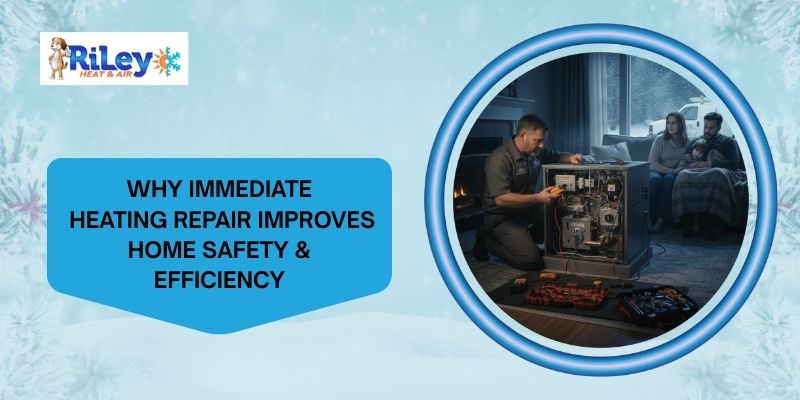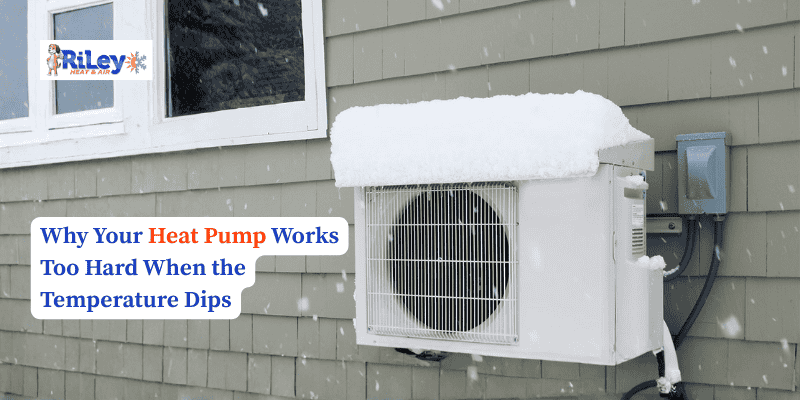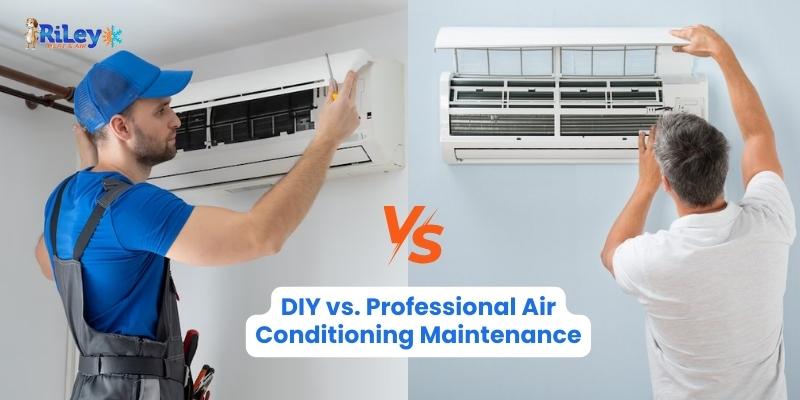
DIY vs. Professional Air Conditioning Maintenance: What’s Best for Your Unit?
Maintaining your Air Conditioning (AC) unit is essential for ensuring its efficiency, longevity, and performance. However, the debate between DIY (do-it-yourself) air conditioning maintenance and hiring a professional is common among homeowners. Each approach has pros and cons, which can help you decide what's best for your AC unit.
Understanding DIY AC Maintenance
DIY HVAC maintenance involves performing basic tasks and inspections to keep your unit running smoothly. These tasks include cleaning or replacing air filters, clearing debris around the outdoor unit, and checking the thermostat settings. Homeowners can handle these simple maintenance activities without requiring specialized tools or extensive technical knowledge.
Pros of DIY AC Maintenance
One of the primary advantages of DIY air conditioning maintenance is cost savings. Performing basic tasks yourself can help you avoid the service fees associated with professional maintenance. Additionally, DIY maintenance allows you to address minor issues promptly, potentially preventing them from escalating into more significant problems. Regularly cleaning and replacing air filters, for example, can improve airflow and energy efficiency, reducing overall cooling costs.
Another benefit of DIY maintenance is the convenience of performing tasks at your own pace and schedule. You don't need to coordinate with a technician or wait for an appointment, which can be particularly advantageous during peak seasons when HVAC professionals are in high demand.
The Cons of DIY AC Maintenance
Despite its benefits, DIY AC maintenance has limitations. Homeowners may lack the technical expertise to identify and address more complex issues that could impact the AC unit's performance and longevity. For instance, detecting refrigerant leaks, diagnosing electrical problems, or calibrating the system requires specialized knowledge and equipment. Fixing these issues without proper training can lead to further damage and costly repairs.
Moreover, DIY maintenance can be time-consuming. Regularly cleaning the unit, inspecting components, and performing necessary checks require a significant time investment. Busy homeowners may struggle to keep up with the recommended maintenance schedule, potentially leading to neglected upkeep and decreased system efficiency.
The Benefits of Professional AC Maintenance
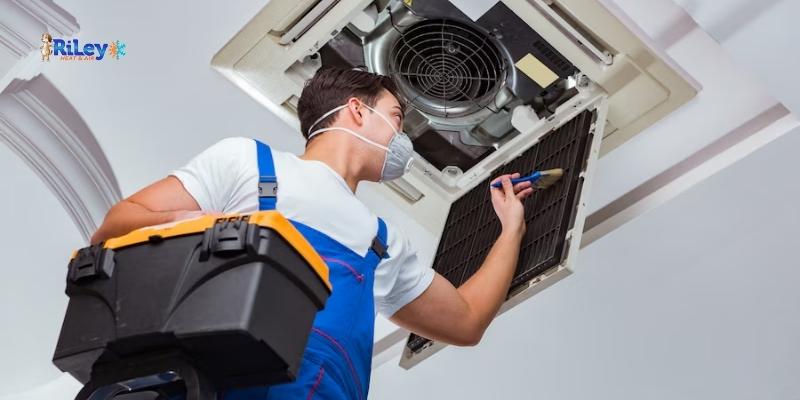
Professional AC maintenance involves hiring a professional HVAC company to perform comprehensive inspections, tune-ups, and repairs on your unit. These technicians have the expertise, tools, and experience to address various issues and ensure your AC system operates at peak performance.
Pros of Professional AC Maintenance
One of the most significant advantages of professional AC maintenance is the thoroughness of the service. HVAC technicians can conduct detailed inspections, identify potential problems, and perform necessary repairs that may not be apparent during a DIY check. Their expertise ensures that all components are functioning correctly, and they can provide valuable recommendations for optimizing system performance.
Professional maintenance also includes tasks that go beyond basic DIY efforts. Technicians can clean and lubricate internal components, check refrigerant levels, test electrical connections, and calibrate the system for optimal efficiency. These comprehensive services can extend the lifespan of your AC unit, reduce the risk of unexpected breakdowns, and improve overall energy efficiency.
Additionally, professional maintenance often comes with service guarantees and warranties. If issues arise shortly after a service visit, the technician may return to address them at no additional cost. This added peace of mind could be particularly valuable during the hot summer when a functioning AC is crucial for comfort.
Cons of Professional AC Maintenance
The primary drawback of professional AC maintenance is the cost. Service fees can vary depending on the scope of work and the specific company you hire. While the long-term benefits of professional maintenance often outweigh the costs, the upfront expense may deter some homeowners from scheduling regular visits.
Another potential downside is the need to coordinate with a technician's schedule. During peak seasons, it can be challenging to secure an appointment promptly, leading to possible delays in maintenance or repairs. However, many professional HVAC companies offer maintenance plans that include scheduled visits, helping to mitigate this inconvenience.
Finding the Right Balance
Deciding between DIY and professional AC maintenance ultimately depends on your comfort level, budget, and the tasks' complexity. DIY maintenance can be a cost-effective and convenient solution for basic upkeep, such as cleaning or replacing air filters and clearing debris. However, professional AC maintenance is highly recommended for more comprehensive inspections, repairs, and optimizations.
Combining DIY and Professional Maintenance
A balanced approach combining DIY and professional maintenance can offer the best of both worlds. Homeowners can handle routine tasks like filter changes and debris removal while scheduling annual or bi-annual professional inspections to ensure the system remains in top condition. This approach can maximize the efficiency and lifespan of your AC unit while keeping maintenance costs manageable.
Understanding When to Call a Professional
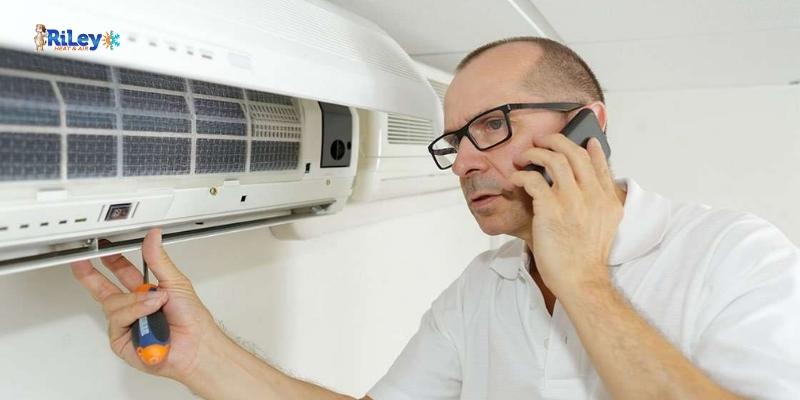
Knowing when to call a professional air conditioning service team is crucial for maintaining your AC unit's performance and preventing costly repairs. If you notice any of the following signs, it's time to contact HVAC professionals:
- Unusual Noises: Banging, clanking, or hissing sounds can indicate mechanical issues or refrigerant leaks.
- Weak Airflow: Reduced airflow from vents can signal a blockage, ductwork problems, or a failing compressor.
- Inconsistent Cooling: If some rooms are cooler than others or the system struggles to maintain a set temperature, it may need professional attention.
- Increased Energy Bills: A sudden spike in energy costs can indicate inefficiencies or malfunctions within the system.
- Frequent Cycling: If the AC unit turns on and off frequently, it could be a sign of a malfunctioning thermostat or other issues.
Maintaining Records
Keeping detailed records of all maintenance activities, whether DIY or professional, can help track the health of your AC unit over time. These records can be invaluable for diagnosing recurring issues, planning future maintenance, and providing documentation if warranty claims or insurance matters arise.
Conclusion
Both DIY and professional air conditioning maintenance are necessary to ensure the longevity and efficiency of your air conditioning unit. While DIY maintenance can handle basic tasks and save money, professional maintenance offers comprehensive services and expert insights for optimal performance. However, if you have no technical knowledge about your unit, we recommend leaving every maintenance aspect to the right professionals.


